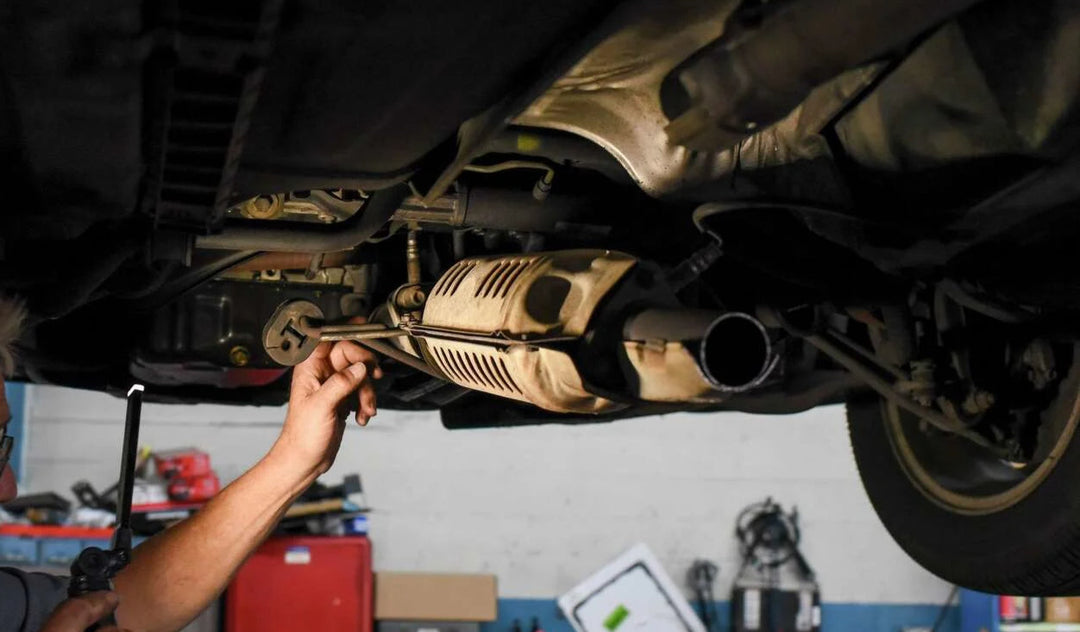There are several reasons why we came out with a stainless steel line. The main reason is that 304 stainless steel offers the best level of protection against thieves and galvanic corrosion. We've tested our stainless steel shields against the best blades on the market and all the blades failed. Diablo carbide tip blades with a Milwaukee sawzall is no match for our stainless steel line. A thief will need multiple blades to even have a shot at cutting off the shield. No other manufacturer is committed to using premium materials that will give you peace of mind.
We know not everyone will be able to afford the stainless steel shields. 9 times out of 10, simply having a shield is a great step in deterring thieves from stealing your converter since they will see a shield and likely move on. The aluminum shield is great to give you that initial deterrence.
Whether you choose a stainless steel or aluminum Cat Shield, you will not need to worry about overheating. Our products are tested to ensure there are no adverse impact to your converters.
Some facts about stainless steel:- Strength, density, weight. Stainless steel has about twice the tensile strength of aluminum, making it harder to cut, bend, and warp. It is about 2.5 times more dense than aluminum and about three times as heavy. Our stainless shields are about twice as heavy as our aluminum ones depending on the application (4lbs vs 2lbs).
- Corrosion. While both stainless steel and aluminum have anti-corrosive properties, we use zinc-coated rivet nuts to protect against galvanic corrosion. Whenever there is a drilled hole in the steel frame of the vehicle, the frame looses its protective coating and can accelerate corrosion. Whenever possible, we design our shields without drilled holes, but whenever our products need a drilled hole, we protect the vehicle with our zinc-coated rivet nuts.
- Thermal properties. In temperatures of excess of 400 degrees, aluminum becomes very soft. If you encase a converter in aluminum, you will easily reach these temperatures. Our aluminum designs ensure the shields are adequately ventilated and tested to make sure they do not cause excessive build up of heat.
- Thermal conductivity. Aluminum has a better thermal conductivity than steel. This means that aluminum will heat up quicker than steel. However, neither materials will impact the temperatures around the converter due to our heat ventilation features.
Miller CAT Cat Shield vs Milwaukee Sawzall and Diablo Carbide Tip Blades
FAQ
Is stainless steel 304 magnetic?
No, 304 stainless steel is not magnetic. Its austenitic microstructure is responsible for this. Austenite forms at high temperatures and usually reverts to the ferritic microstructure during the cooling process. The ferritic microstructure is magnetic. However, 304 stainless steel is alloyed with nickel, stabilizing the austenitic microstructure and enabling it to remain intact during the cooling process. That is how we can have a non-magnetic austenitic microstructure at room temperature.
304 stainless steel has a slight susceptibility to magnets, but this is not strong enough to be considered magnetic. Note that any process that this metal undergoes that changes its microstructure to ferritic will render it more magnetic.
https://finemetalworking.com/is-stainless-steel-magnetic
Which types of stainless steel are magnetic?
Below are a few examples of magnetic and non-magnetic:
Ferritic stainless steel grade 430 is magnetic
The austenitic stainless steel grade 304 is not magnetic but it may become a little magnetic in areas that have been cold working (bending, deforming, etc.).
Austenitic stainless steel grade 316 is not magnetic





